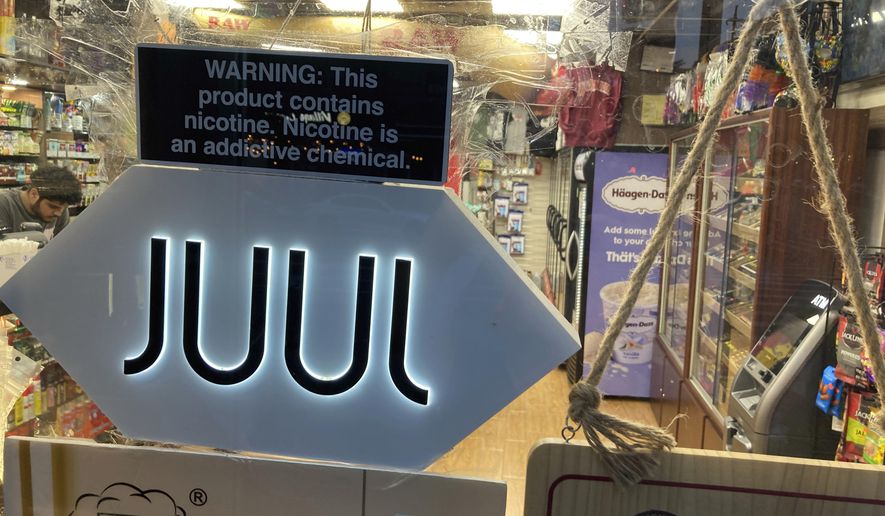E-cigarette manufacturer Juul agreed Tuesday to pay out $438.5 million over a multi-state inquiry into the company’s marketing practices.
In exchange for the payouts, 33 states and Puerto Rico agreed to drop legal claims against the company, though some lawsuits from other states and individuals are still pending.
In particular, the company has been accused of marketing specifically to teens with slick marketing, attractive flavors, and a chemical composition that went easier on the throat.
Juul launched in 2015, and the company’s early packaging was cagey about whether or not it contained nicotine, how much nicotine it did contain, and any equivalences between its liquid pods and cigarettes.
“Consumers were similarly misled into believing … that the product was a smoking cessation device despite the absence of FDA approval to make such claims,” Texas Attorney General Ken Paxton said in a statement.
The Food and Drug Administration stripped Juul in late June of the right to sell its products in the U.S., though the company took that order to court and won a stay of the order in early July.
Connecticut Attorney General William Tong said in his announcement that “Juul’s cynically calculated advertising campaigns created a new generation of nicotine addicts … The full public health ramifications of this misconduct are yet unknown.”
He called the settlement an “agreement in principle,” meaning the states will be finalizing the documents over the next several weeks.
The investigation was initiated and led by Mr. Paxton and Mr. Tong along with Oregon Attorney General Ellen Rosenblum.
Texas will receive $42.8 million of the settlement, with Connecticut collecting $16.2 million and Oregon taking home $18.8 million.
Those three states took the lead in conducting the investigation; the other states signed onto the results and would have joined any litigation.
The settlement also prevents Juul from using a number of marketing practices going forward.
Stipulations include “not using cartoons, paying social media influencers, depicting people under 35, advertising on billboards and public transportation and placing ads in any outlets unless 85% of their audience are adults,” according to the Associated Press.
Juul still faces nine separate lawsuits from other U.S. states, as well as hundreds of personal suits from teenagers and others who accuse the company’s marketing of leading them to product use and addiction.
Similar cases between Juul and North Carolina, Louisiana, Arizona, and Washington were resolved before Tuesday’s multistate settlement.
In a statement, Juul said that “The terms of the agreement are aligned with our current business practices which we started to implement after our company-wide reset in the Fall of 2019… We recently submitted an administrative appeal, based on science and evidence, to FDA, demonstrating that its marketing denial order (MDO) of our products was substantively and procedurally flawed and should be rescinded.”
• Brad Matthews can be reached at bmatthews@washingtontimes.com.




Please read our comment policy before commenting.